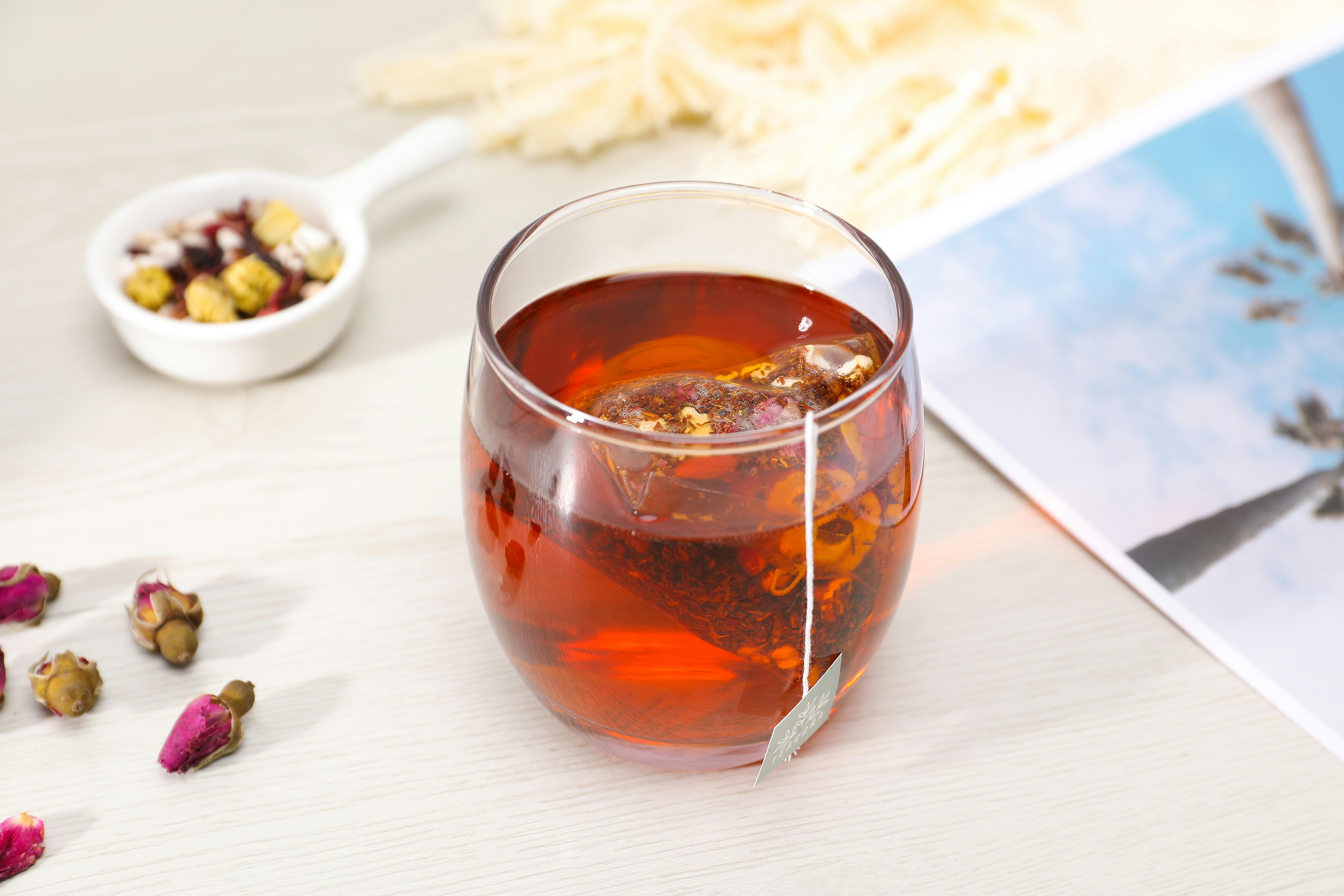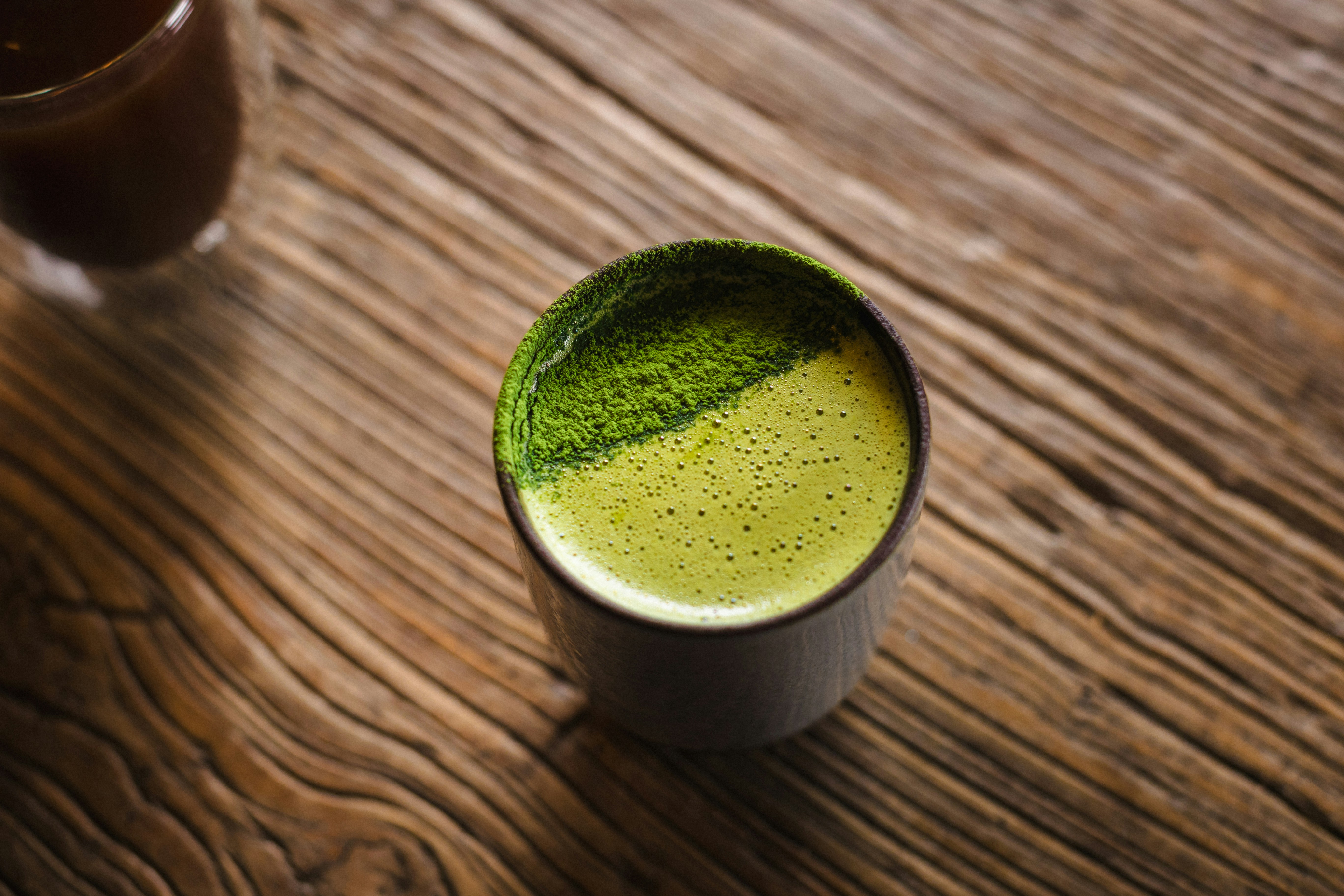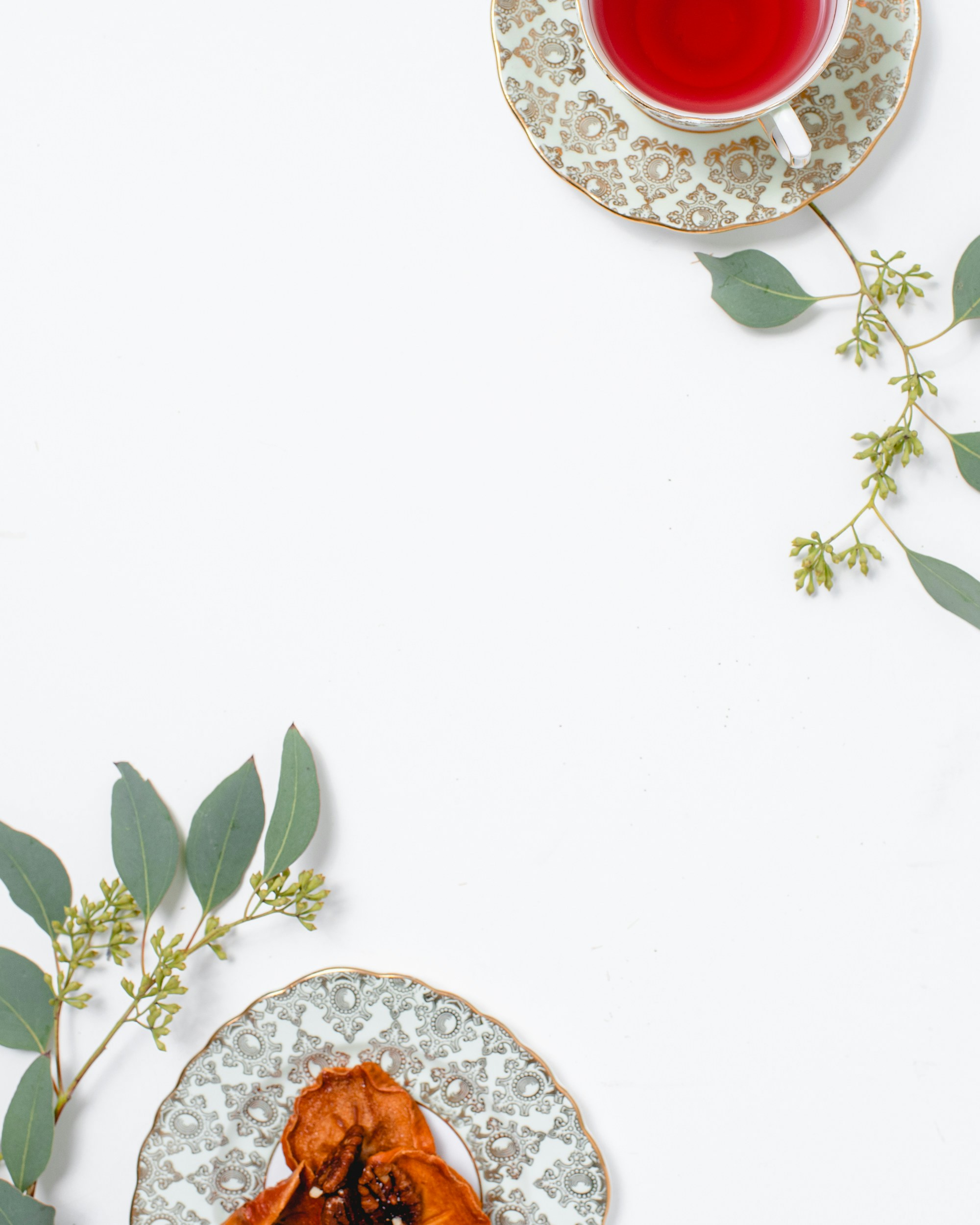The Revitalizing Spirit of Herbal Tea
Herbal tea offers more than just a simple beverage; it embodies a rich tradition of spiritual exploration and emotional nourishment. The calming ritual of brewing herbal tea provides a sanctuary from the demands of our busy lives, inviting us to immerse ourselves in a moment of tranquility and reflection. This mindful pause transforms an ordinary activity into an opportunity for profound connection, nurturing our spirits amidst the hustle of daily life and fostering a deeper sense of inner peace.
The sensory experience of preparing herbal tea plays a crucial role in its allure. From the soothing sound of boiling water to the exquisite aroma released as the tea leaves steep, each step captivates the senses and enhances our overall experience. The vibrant colors of the herbs and the gentle steam wafting from the cup create a serene atmosphere that encourages mindfulness and presence. Engaging in this ritual can elevate our mood, providing a peaceful respite that allows us to regain focus, clarity, and a sense of groundedness.
Furthermore, the ceremonial aspects of herbal tea preparation, which vary significantly across cultures, add another layer of depth to the experience. For many, this includes dedicating time to select the perfect blend, considering the unique benefits of each herb, and perhaps even incorporating meditation or affirmations during the brewing process. This mindful engagement can serve as a grounding force, cultivating a deeper connection to ourselves, our intentions, and the world around us.
In the context of spiritual well-being, incorporating herbal tea into our daily routine can facilitate introspection, a fundamental aspect of personal growth and emotional resilience. As we savor each sip from our warm cup, we embrace a moment of stillness—an essential practice for nurturing our spirits and fostering a harmonious relationship with our inner selves and our surroundings. Embracing this ancient tradition can ultimately lead to a heightened sense of peace and tranquility, providing a much-needed refuge within our increasingly chaotic lives.
The Enduring Historical Significance of Herbal Tea in Spiritual Practices
Throughout history, herbal tea has held a prominent place in spiritual practices across diverse cultures. Many ancient civilizations utilized these infusions not solely for their physical health benefits but as integral elements in rituals designed to connect with the divine or the spiritual realm. In cultures worldwide, specific herbs were often revered as sacred, believed to possess unique properties that could facilitate communication with higher powers or spirits, bridging the gap between the earthly and the ethereal.
For instance, in ancient Egypt, herbs such as chamomile and mint were commonly used in religious ceremonies. These plants were often incorporated into rites honoring the gods and were believed to offer protection and purification. Herbal tea was consumed during sacred events, acting as a conduit for spiritual experiences, and was even buried alongside pharaohs to accompany them on their journey into the afterlife, signifying its profound spiritual importance.
Similarly, in indigenous cultures, herbal teas were integral to spiritual healing practices. Native American tribes, for example, would prepare various herbal infusions with specific intentions, using them in ritualistic contexts to invoke healing or insight from spiritual guides. The process of brewing and consuming these teas symbolized a deep connection to nature and the universe, fostering a sense of unity with all living things and a reverence for the natural world.
Moreover, the ancient Greek philosopher Hippocrates is often associated with the values attributed to herbal remedies, promoting the idea that plants could serve not only medicinal purposes but also spiritual ones. His teachings influenced rituals across Europe, where herbal teas became staples in enhancing clarity and focus during meditation and prayer, further solidifying their esteemed status in spiritual traditions and highlighting their multifaceted benefits.
As cultures evolved, the significance of herbal tea in spiritual practices continued to flourish. From the meticulously choreographed tea ceremonies of Japan, which emphasize mindfulness and presence, to the use of herbal preparations in modern holistic practices, the thread of herbal tea as a bridge to the spiritual world remains strong, illustrating the enduring human quest for meaning and connection beyond the physical realm and the desire to tap into something greater than ourselves.
Herbal Tea and Mindfulness: Cultivating Presence and Awareness
Mindfulness, the practice of being fully present and engaged in the current moment, can be significantly enhanced through the ritual of brewing and savoring herbal tea. The simple act of preparing tea provides a valuable opportunity to cultivate mindfulness, allowing individuals to reconnect with their environment, their senses, and themselves. By focusing on the sensory experiences associated with herbal tea—the sight, sound, smell, taste, and touch—one can foster a deeper sense of awareness and presence, anchoring oneself in the here and now.
To create a mindful tea ritual, begin by selecting an herbal tea that resonates with you, whether it’s chamomile for its calming properties or peppermint for its invigorating aroma. As you gather your ingredients, take a moment to appreciate their unique qualities – their colors, textures, and scents. This initial step engages your senses and prepares you for a truly mindful experience, setting the stage for a deeper connection with the ritual.
Throughout the brewing process, pay close attention to each step. Observe the steam rising from the hot water, listen to the subtle sound of the leaves infusing, and feel the warmth of the cup in your hands. Allow your thoughts to gently drift away and immerse yourself fully in the present moment. As the tea steeps, take a moment to breathe deeply, inhaling the fragrant aroma that fills the air. This olfactory experience can serve as an anchor to the present moment, grounding your mind and body and promoting a sense of calm.
Many individuals report experiencing positive transformations through this practice. For instance, incorporating a mindful tea ritual into a busy schedule can create moments of clarity and peace. By embracing this ritual, you can discover how herbal tea not only nourishes the body but also enhances spiritual well-being through increased mindfulness, presence, and a deeper connection to your inner self.
Individuals who engage in mindful tea drinking report a range of benefits, including stress reduction, improved focus and concentration, and increased self-awareness. By incorporating this practice into your daily routine, you can access these benefits and cultivate a more mindful and peaceful life.
Healing Herbs with Spiritual Resonance: Exploring the Unique Properties of Chamomile, Peppermint, and Lavender
Herbal teas have long been celebrated not only for their physical benefits but also for their profound impact on spiritual well-being. Within the realm of herbal medicine, certain herbs possess unique qualities that resonate with emotional and spiritual health. Among the most notable are chamomile, peppermint, and lavender. Each of these herbs offers distinct traditions and spiritual properties that contribute to their effectiveness in promoting a balanced and harmonious spirit.
Chamomile, widely recognized for its calming effects, is often used to alleviate anxiety and stress. Traditionally, chamomile has been associated with calming the mind, promoting relaxation, and enhancing spiritual clarity. Many cultures have utilized this gentle herb in rituals aimed at fostering inner peace and connection with the divine, recognizing its power to soothe and center the spirit. Anecdotal evidence suggests that chamomile tea can serve as a powerful tool for meditation and reflection, allowing individuals to cultivate a serene mental space for spiritual exploration and self-discovery.
Peppermint is another herb renowned for its refreshing and invigorating properties. Traditionally, it has been used to uplift the spirit, clear emotional blockages, and promote mental clarity. This herb is considered a purifying agent, often used to elevate one’s mood and stimulate a sense of focus and concentration. In spiritual practices, peppermint tea is frequently employed to enhance clarity and mindfulness, making it a popular choice for those seeking to deepen their meditation experiences and connect more fully with the present moment. Numerous individuals report heightened awareness and enhanced connections with their intuition after incorporating peppermint into their daily routines.
Lavender, beloved for its soothing aromatic qualities, stands out for its remarkable ability to foster tranquility and balance. Often linked with relaxation, stress reduction, and emotional healing, lavender tea has been traditionally employed in various spiritual practices to promote restful states, reduce anxiety, and enhance dreamwork. Many users claim that drinking lavender tea before sleep not only leads to more vivid and meaningful dreams but also encourages spiritual insight and self-discovery. As a result, it is often recommended as a valuable tool for those on a spiritual journey toward personal growth, self-awareness, and a deeper understanding of their inner selves.
These are just a few examples of herbs with powerful spiritual resonance. By exploring the unique properties of different herbs, you can discover which ones best support your individual spiritual journey and incorporate them into your tea rituals for enhanced well-being.
Crafting Your Own Sacred Tea Blends: A Personalized Journey of Exploration and Connection
Creating personalized herbal tea blends that resonate with your own unique spiritual journey is an enriching and rewarding experience. The process allows you to connect deeply with the herbs and flavors that speak to your spirit, creating a truly personalized and meaningful ritual. To begin your journey, consider the intentions you wish to cultivate through your tea. Herbal teas can be invigorating, calming, or purifying, so identifying your goals will help shape your blend and ensure that it aligns with your specific needs and desires.
One effective method for crafting your tea is to start with a base herb. Common base herbs include chamomile, which promotes relaxation and reduces stress, or green tea, known for its invigorating properties and antioxidant benefits. Once you have selected your base, consider adding supportive herbs that align with your intention. For example, if you seek to enhance clarity and focus, incorporating herbs like rosemary or ginkgo biloba may be beneficial. These herbs are known for their cognitive-enhancing properties and can help to sharpen the mind and improve concentration.
Experimentation is key to discovering the perfect blend. Mix base and supportive herbs in varying proportions until you find a balance that resonates with you and your intentions. For instance, a soothing blend could consist of equal parts chamomile, lavender, and lemon balm, while a revitalizing mix might feature green tea with a hint of peppermint and ginger. Don’t hesitate to incorporate spices such as cinnamon or cardamom, as they can elevate flavor profiles while also imparting their own unique health benefits and adding depth and complexity to your blend.
In addition to herb selection, consider the temperature and steeping time for your tea. Different herbs release their flavors and benefits more effectively at specific temperatures, so follow guidelines to enhance your tea-drinking experience. Many herbs may benefit from a longer steeping time to fully extract their beneficial compounds, while others might lose potency if steeped for too long. Once you have crafted your perfect blend, take a moment to perform a small ritual, perhaps lighting a candle or practicing mindfulness, as you enjoy your sacred tea. This can enhance the experience and create a more meaningful connection with your tea.
Ultimately, the goal is to create a blend that not only nurtures your spirit but also embodies your unique preferences and intentions. By blending herbs thoughtfully, you are engaging in a practice that encourages introspection, self-discovery, and spiritual growth. This personalized approach allows you to connect with the herbs on a deeper level and create a ritual that is truly your own.
Tea Rituals from Around the World: Exploring Cultural Traditions and Spiritual Practices
Tea has been an integral part of many cultures for centuries, often intertwined with spiritual practices and rituals that promote mindfulness, well-being, and connection. One of the most renowned tea traditions is the Japanese tea ceremony, or Chanoyu, which transcends mere beverage consumption and offers a rich, meditative experience. In this ceremony, participants engage in the art of tea preparation and drinking, paying meticulous attention to every detail—from the selection of utensils to the graceful movements of the host. This mindful approach encourages an atmosphere of tranquility and connection to the present moment, allowing participants to fully appreciate the sensory experience of tea and connect with themselves and their surroundings on a deeper level. Participants often find that engaging in this ritual fosters a sense of peace, facilitates a deeper connection to themselves and their surroundings, and promotes a greater appreciation for the simple act of drinking tea.
In India, the preparation and sharing of chai serves as a vital ritual, often rooted in community and familial bonds. This spiced tea, brewed with a blend of black tea, milk, and various spices, is more than just a drink; it is a catalyst for connection and a symbol of hospitality. The act of brewing chai is often accompanied by meaningful conversations that explore life’s complexities, allowing individuals to share their thoughts, experiences, and perspectives. Many individuals participating in these chai rituals report feelings of warmth, belonging, and connection, ultimately enriching their spiritual well-being by fostering a sense of community and shared experience.
Similarly, in China, the Gongfu tea ceremony emphasizes the art of brewing high-quality tea with precision and care. This ritual is characterized by its focus on the sensory experience of tea drinking, enabling participants to fully appreciate the subtle nuances of flavors and aromas. This heightened awareness transforms tea time into a cherished space for reflection, self-discovery, and connection with the present moment, leading to a revitalization of one’s spirit and a deeper appreciation for the art of tea.
Across various cultures, tea rituals reveal profound insights into the human experience and promote spiritual growth, connection, and well-being. Engaging with these rich traditions allows for a deeper appreciation of tea, not just as a beverage but as a source of comfort, connection, and spiritual nurturing, enriching our lives in countless ways.
Listening to Your Inner Self: Intuition and Tea
Herbal tea has long been regarded as a source of comfort, warmth, and healing. However, its role extends beyond mere physical health; it serves as a profound tool for personal introspection, spiritual growth, and connection with one’s intuition. Engaging with herbal tea can create an inviting atmosphere that encourages individuals to listen to their inner self, foster intuition, and develop a deeper connection with their spirituality. By incorporating tea rituals into daily routines, individuals often report heightened levels of self-awareness and a more intuitive understanding of their life paths, allowing them to tap into their inner wisdom and make more informed decisions.
The practice of setting intentions while enjoying a cup of herbal tea is central to this spiritual practice. As one prepares their tea, they can pause to reflect on their desires, goals, or questions that linger within. This mindful approach transforms the simple act of drinking tea into a sacred ritual, allowing practitioners to create a space of receptivity and connect with their inner guidance. For example, some may choose chamomile for its calming properties, enabling a more relaxed state conducive to intuitive insights, while others may opt for peppermint to awaken clarity and focus, sharpening their mental acuity and enhancing their ability to receive intuitive messages. The synergy between the tea’s properties and the intention set can yield profound results, leading to greater self-awareness, clarity, and connection with one’s intuition.
Many individuals recount personal testimonies of increased awareness and spiritual revelations during their tea rituals. These experiences can range from subtle shifts in perspective to profound insights and breakthroughs. One practitioner shared how brewing a blend of lavender and lemon balm before meditating opened a channel to her intuitive voice, resulting in guidance and clarity regarding personal challenges. Others have noted that the simplicity of sipping tea created a space for reflections that might otherwise have gone unnoticed in our fast-paced lives, allowing them to access deeper levels of self-awareness and understanding. This deepening connection to self through herbal tea not only fosters spiritual growth but also cultivates a sense of community, as shared tea experiences can bridge conversations about intuition and personal exploration, creating a supportive and enriching environment for self-discovery.
Addressing Challenges: Sensitivity and Spirituality with Tea
In the realm of spirituality, individuals often seek solace and strength through various practices, including the consumption of herbal tea. However, it is crucial to navigate this sensitive convergence with caution, recognizing that what promotes spiritual well-being might not be sufficient for addressing deeper psychological challenges. While herbal tea can enhance relaxation and mindfulness, it should not be viewed as a replacement for professional assistance, particularly for those dealing with trauma or mental health disorders. It’s important to remember that herbal tea is a complementary practice and not a substitute for professional mental health care.
Tea rituals can certainly contribute to spiritual empowerment and a sense of connection, serving as a comforting practice within one’s routine. Ingredients such as chamomile, lavender, and peppermint are known for their calming effects, which can facilitate a more peaceful state of mind conducive to spiritual exploration and self-reflection. Yet, it is essential to acknowledge that these soothing moments should complement, rather than replace, comprehensive mental health care. Combining the calming benefits of herbal tea with established wellness practices, such as therapy or meditation, can create a more holistic approach to well-being, addressing both the spiritual and psychological aspects of one’s health.
Moreover, spirituality can be a sensitive topic that varies greatly among individuals. Cultural backgrounds, personal beliefs, and life experiences play significant roles in shaping one’s relationship with spirituality and mental health. Therefore, each person’s journey is unique, and their needs must be met on an individual basis. Herbal tea can support spiritual practices, but one must proceed thoughtfully and consider engaging with professionals who specialize in mental health when needed. This ensures a balanced approach that respects the intricate interplay between spirituality and mental wellness, allowing individuals to nurture their spirits effectively without overlooking essential psychological support.
Conclusion: Embracing the Ritual of Herbal Tea for Spiritual Well-being
As we navigate the complexities of modern life, the importance of nurturing our spirit cannot be overstated. Herbal tea emerges not just as a beverage but as a profound ritual that fosters spiritual well-being, offering a pathway to inner peace, self-discovery, and connection. By integrating herbal tea into our daily practices, we cultivate an environment conducive to mindfulness, reflection, and a deeper connection with ourselves. Each cup becomes an opportunity to pause, breathe, and connect with ourselves on a deeper level, nourishing our spirits and fostering a sense of tranquility.
Through the calming properties of ingredients like chamomile, lavender, and peppermint, we can transform our tea-drinking experience into a meditative practice, a moment of respite from the demands of daily life. Each sip can serve as a gentle reminder of our intentions, grounding us amidst the chaos of everyday responsibilities and helping us to stay present and focused. As we immerse ourselves in the aroma and warmth of these herbal teas, we simultaneously foster a sense of presence and tranquility that enhances our spiritual journey and supports our overall well-being.
Therefore, I encourage you to approach your tea rituals with intention and awareness. Choose your herbs thoughtfully, considering their unique properties and how they align with your needs and desires. Reflect on your feelings, emotions, and intentions, and create a sacred space for this experience, allowing yourself to fully immerse in the ritual. Whether you seek relaxation, clarity, or emotional healing, there is an herbal blend that aligns with your needs and can support your spiritual journey. Embrace the simplicity of making herbal tea not only as a daily habit but as a spiritual practice that enriches your life and fosters a deeper connection with yourself and the world around you. By nurturing your spirit through these moments of tea and reflection, you can cultivate a lasting sense of peace, fulfillment, and well-being. Let this be an invitation to weave herbal tea into the fabric of your spiritual routine, allowing it to guide you towards a more harmonious and fulfilling existence.








Leave a Reply